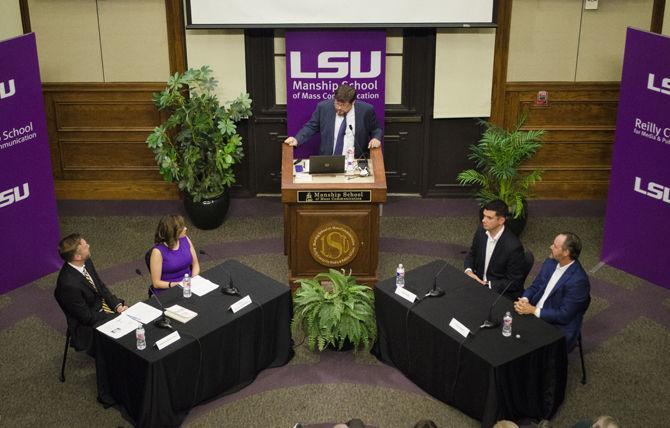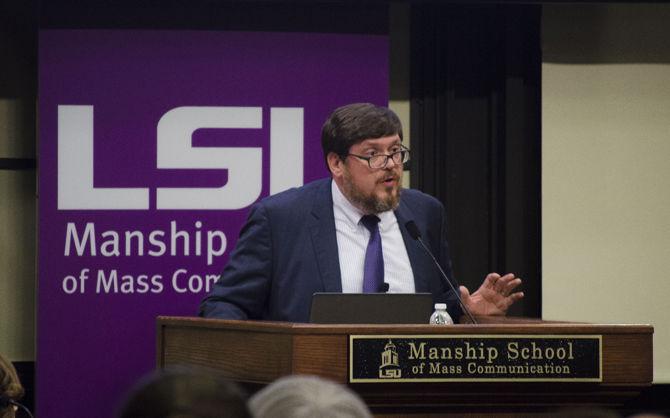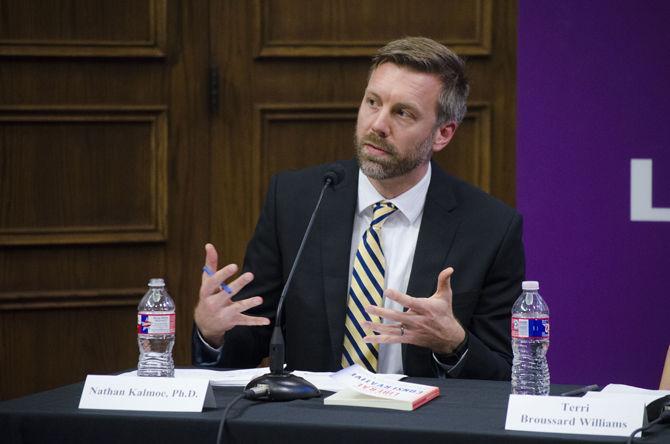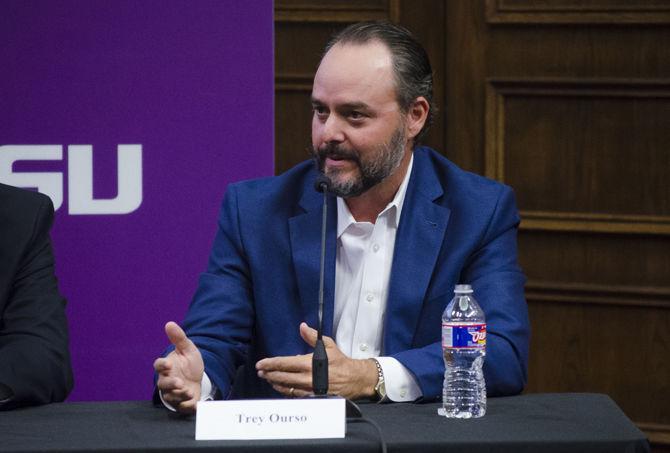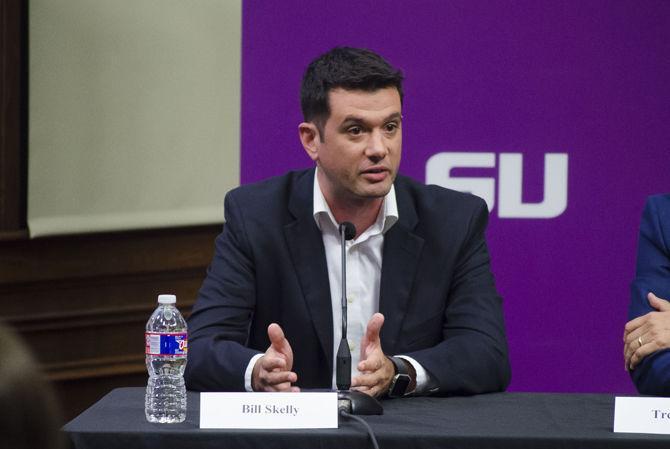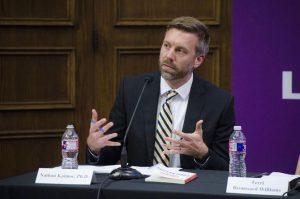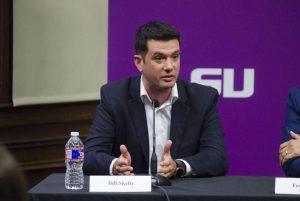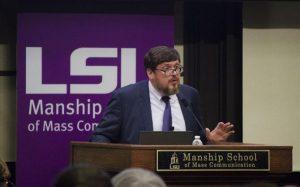Research has discovered that most people are not polarized by ideology, and identify as moderates more than anything else, according to assistant professor of political communication Nathan Kalmoe and his colleague from the University of Michigan Donald Kinder. The two argue in their recently published book “Neither Liberal Nor Conservative: Ideological Innocence in the American Public” that there are few truly ideologically consistent liberals and conservatives in the U.S.
The Manship School of Mass Communication’s Reilly Center for Media and Public Affairs hosted a panel Thursday night in the Holliday Forum that sought to address how, considering this lack of ideology, Americans come to make civic choices and how ideology and partisanship influence political strategists. Present on the panel was Kalmoe and a few other campaign and issue strategists.
Trey Ourso, a political strategist for Ourso Beychok and the former executive director of the Louisiana Democratic Party, found voters can be divided into those who are persuadable on a particular issue and those who are not. Ourso said campaigning on ideology is not as important as campaigning on issues.
“Through research and polling and other data, I am more often than not trying to talk to issues that I know voters are concerned about and that resonate with them,” Ourso said. “I might have a candidate who is running for office for ten very valid reasons, but the persuadable voters in his or her district only care about two of them… we’re going to talk about those two issues over and over again.”
Terri Broussard Williams, the vice president of government affairs at the American Heart Association-South West and Manship School alumna, works specifically on issue-oriented strategy.
Despite the focus on the issues they try to persuade citizens to believe in, Williams said she must take partisanship and ideology into account when altering her message to voters.
“In order to get people to become activists and to stay activists, I still have to talk to them through the lens of which they see the world. The way that I talk to conservatives in Colorado is not going to be the same way I talk to a conservative in Texas,” Williams said.
Partner and Co-Founder of Causeway Solutions and former Deputy Director for the Republican National Committee Bill Skelly argued that ideological identification differs depending on how much a voter’s peers identify as liberal or conservative.
“In not every instance does that moderate label hold the same meaning. I’m from New Jersey and I recently moved down here,” Skelly said. “In New Jersey, I would consider myself a conservative by all measures… down here in Louisiana, I am by far a moderate.”
When Kalmoe and Kinder gave people a scale from extremely liberal to extremely conservative and asked respondents to place themselves where they identify ideologically, around 50 percent identified as moderate or have not thought much about it, creating a higher input for the moderates on the bar graph than any other identification.
“Don[ald Kinder] and I like to joke that this chart [of data] is kind of like a figurative middle finger to the idea that the public is ideological,” Kalmoe said.


